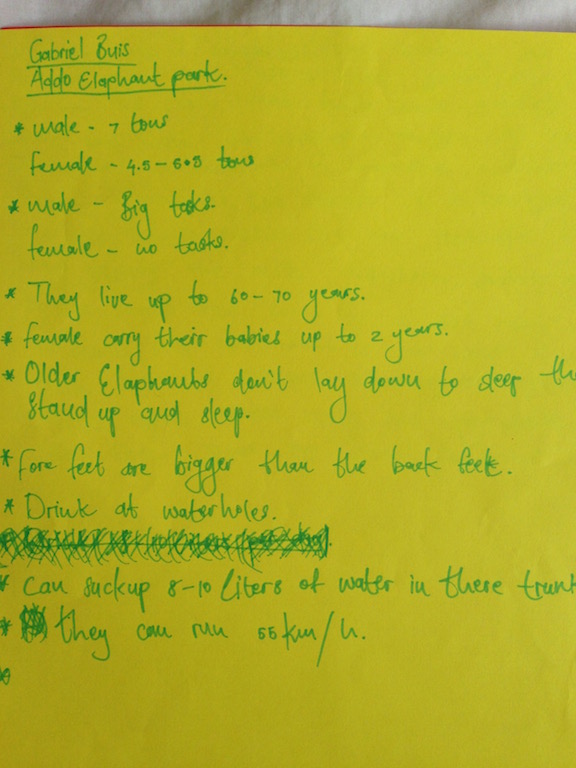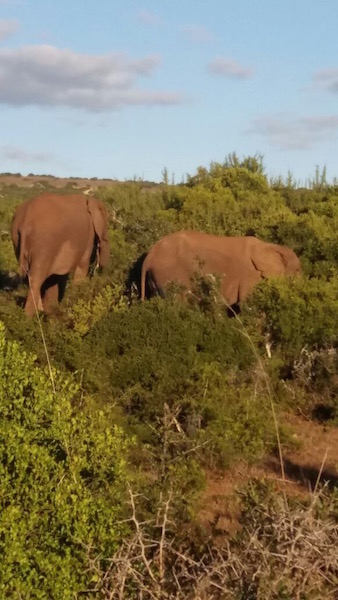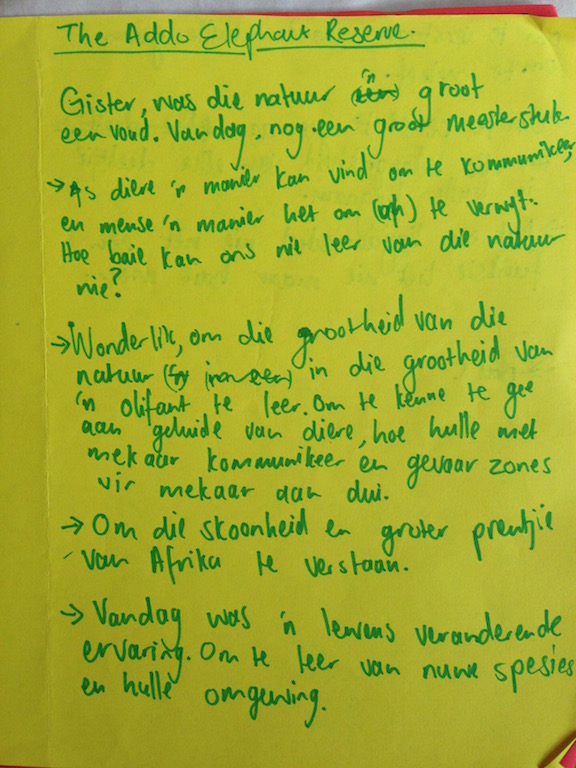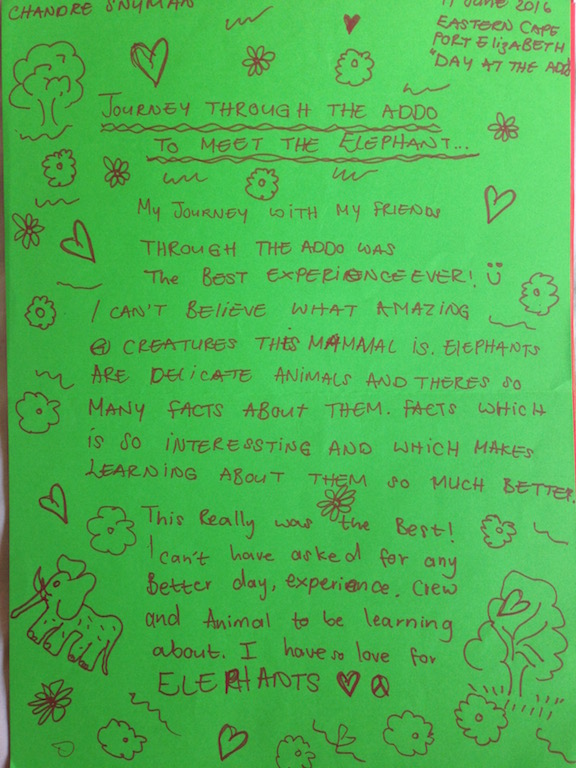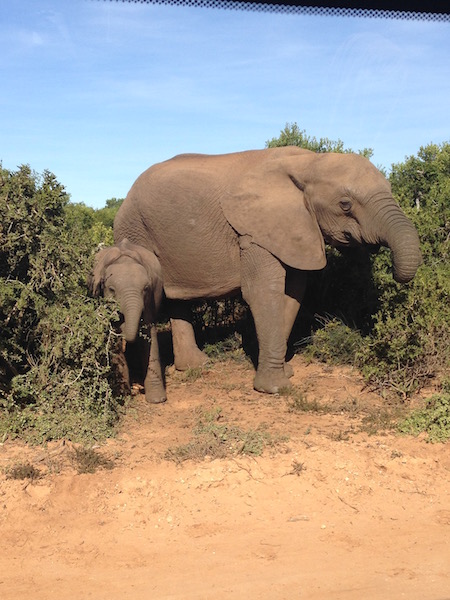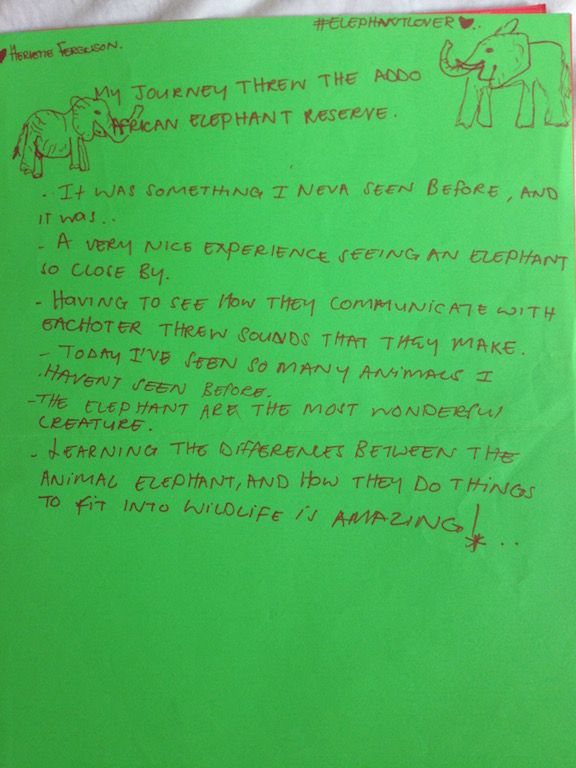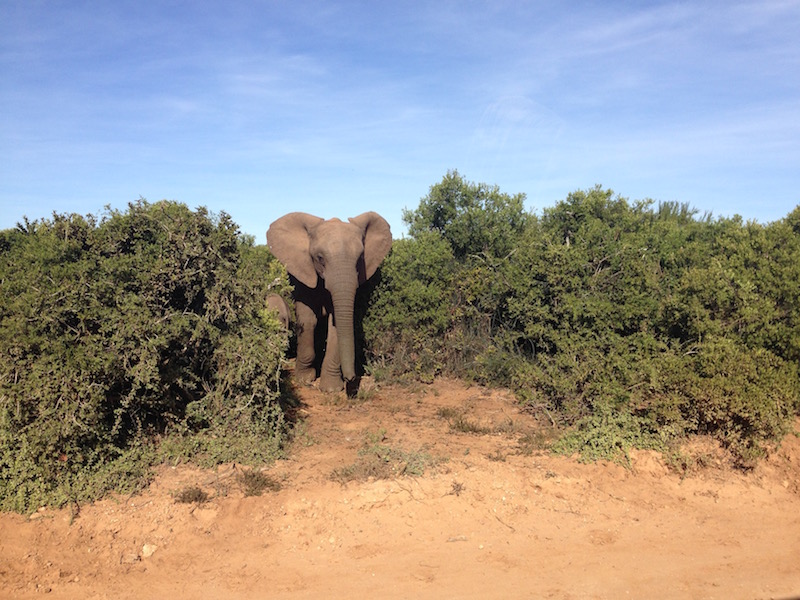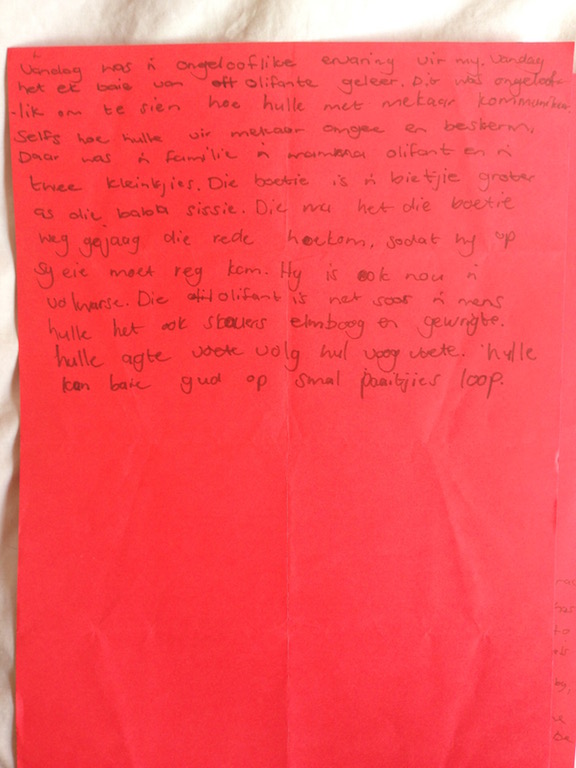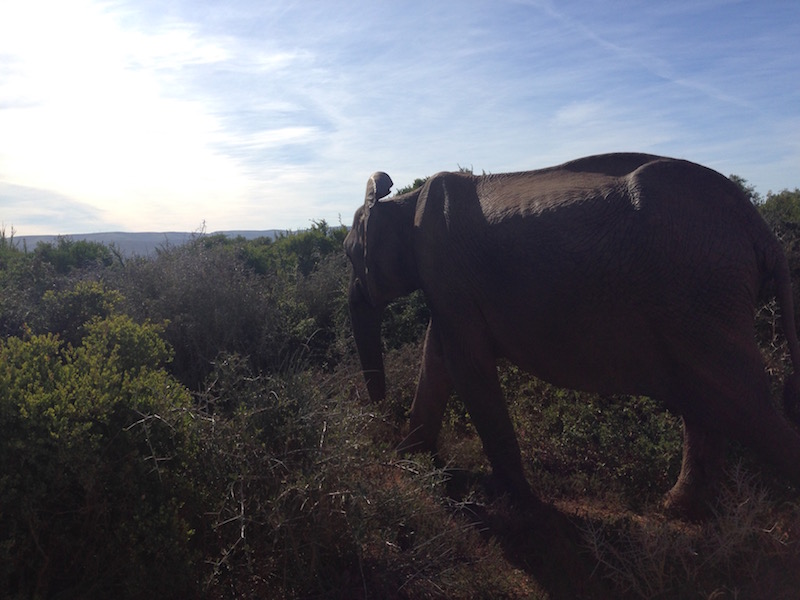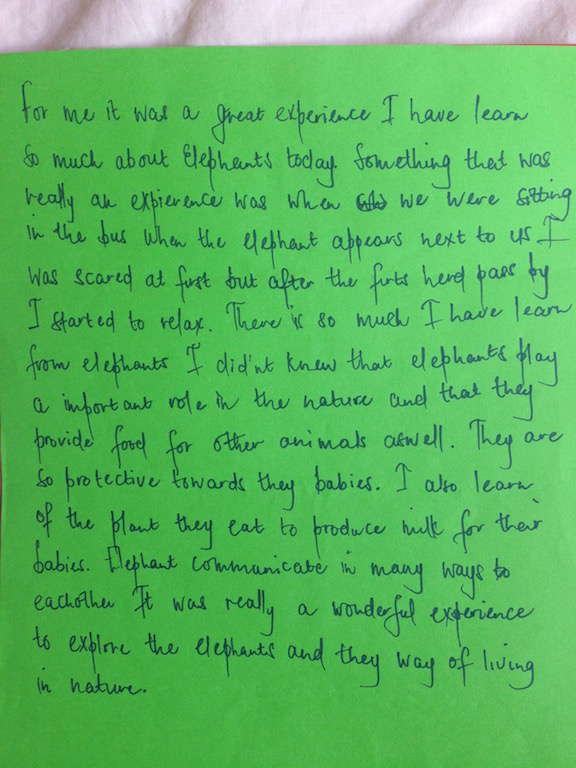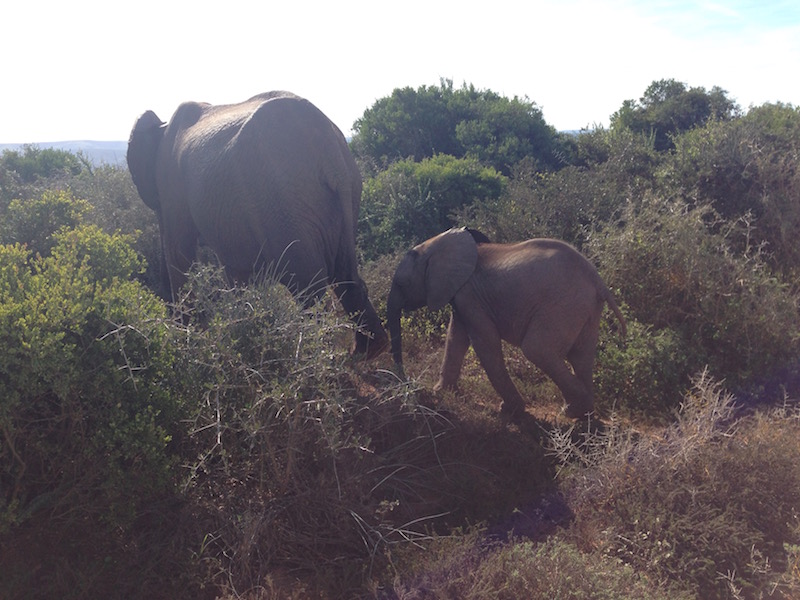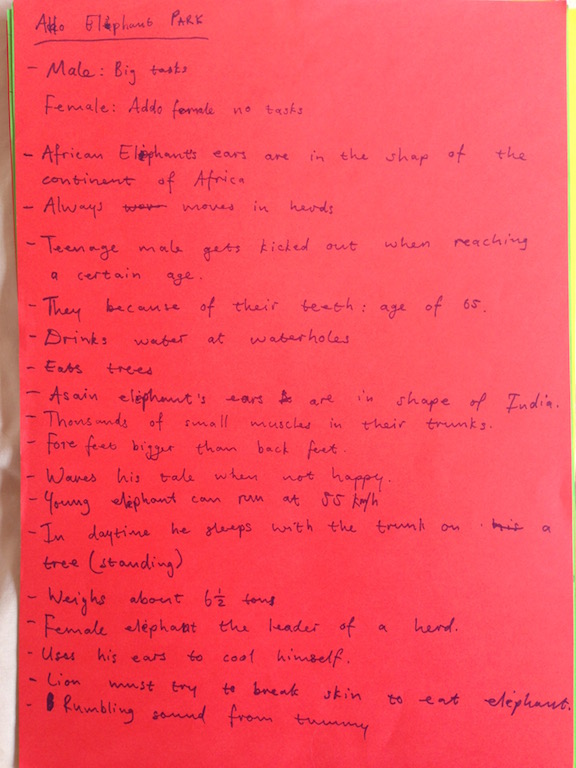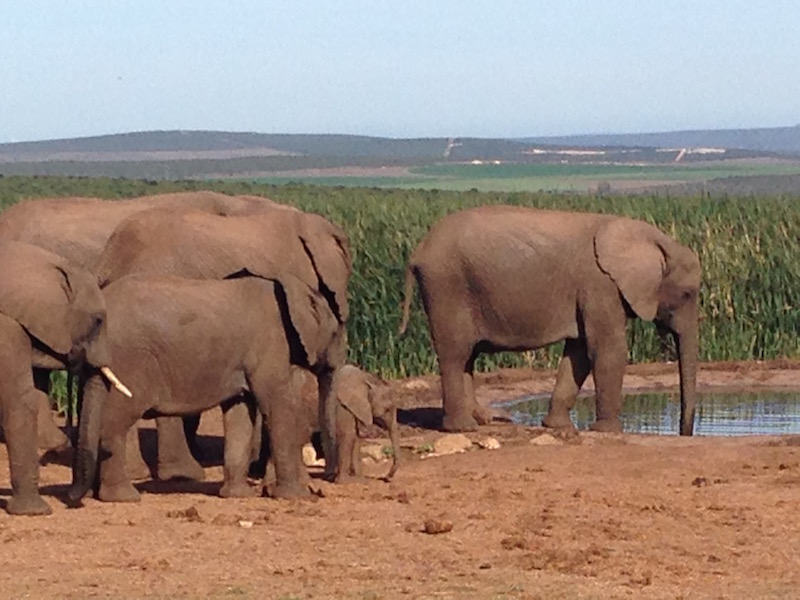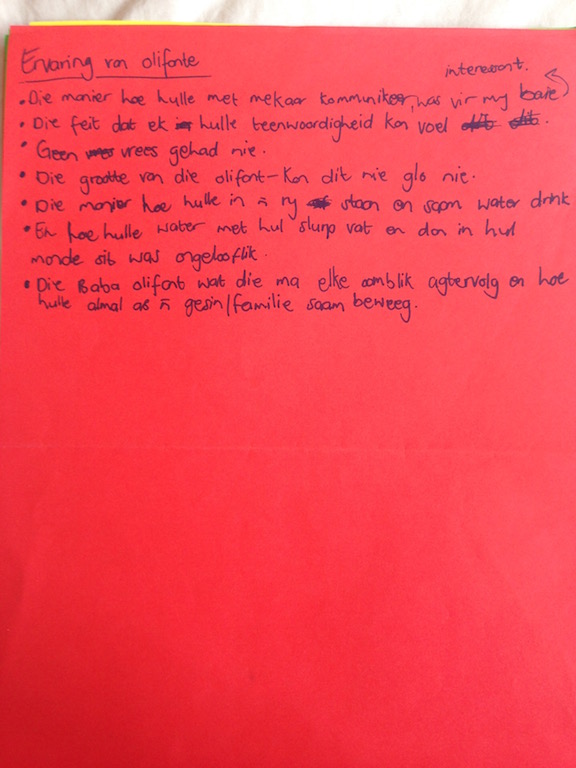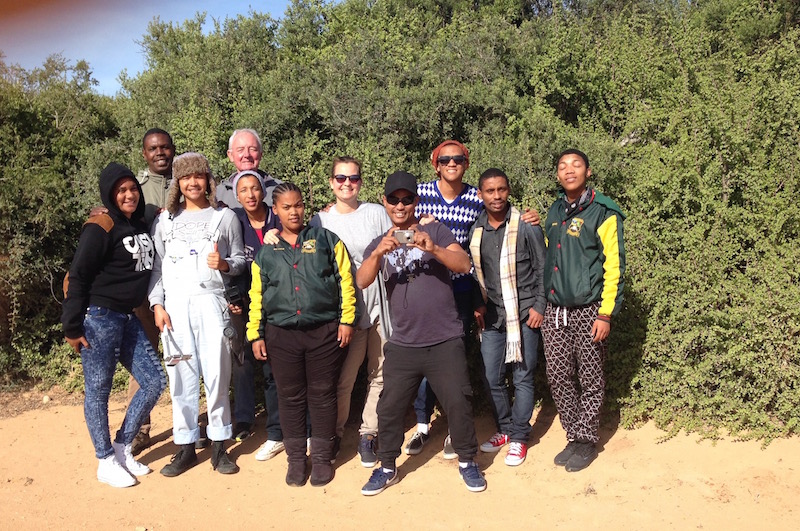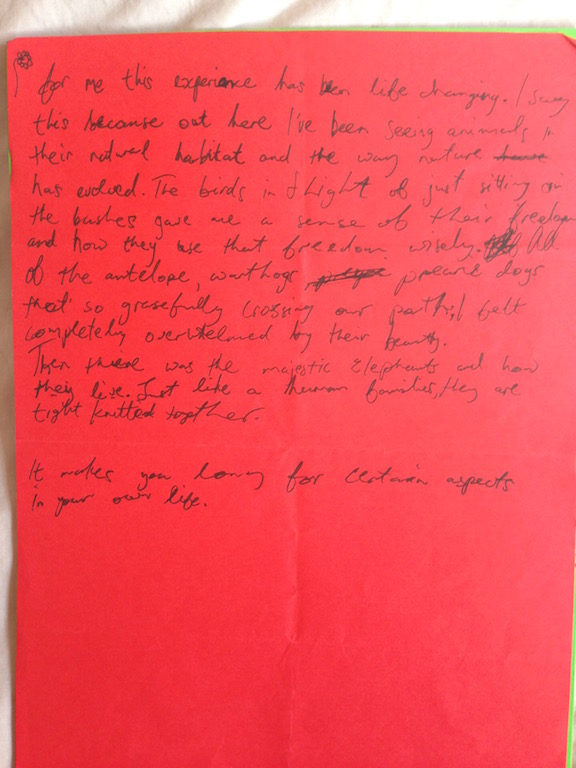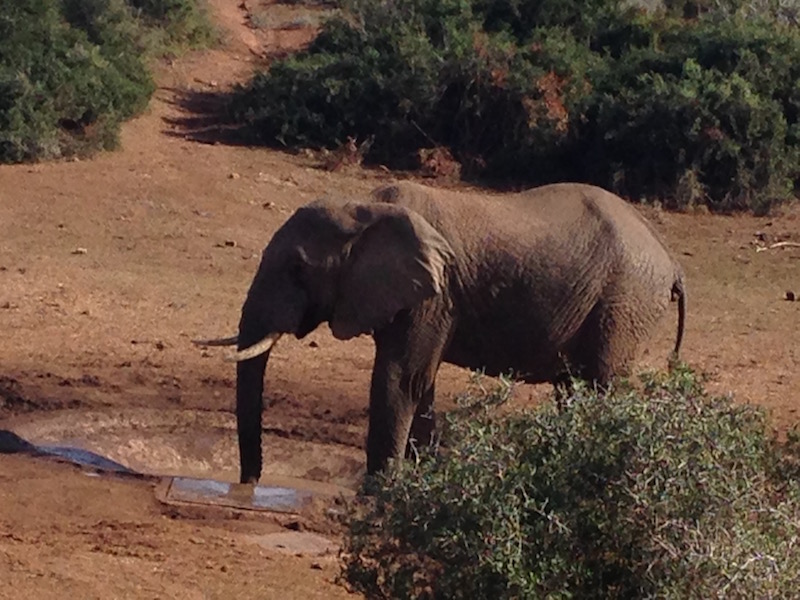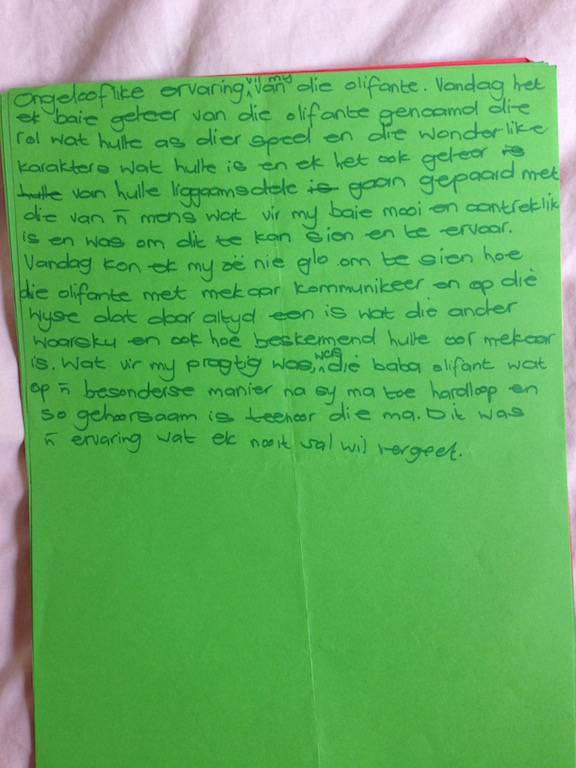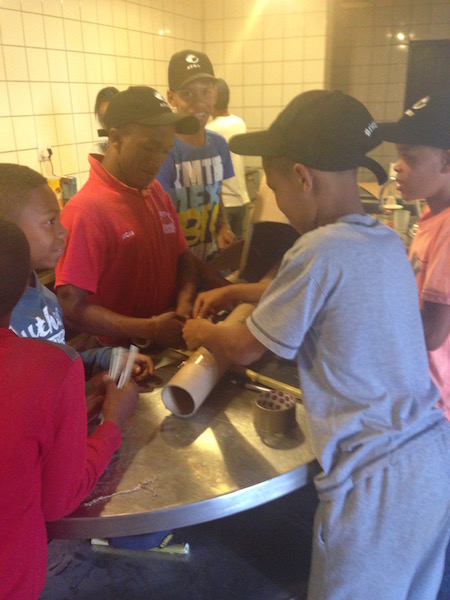
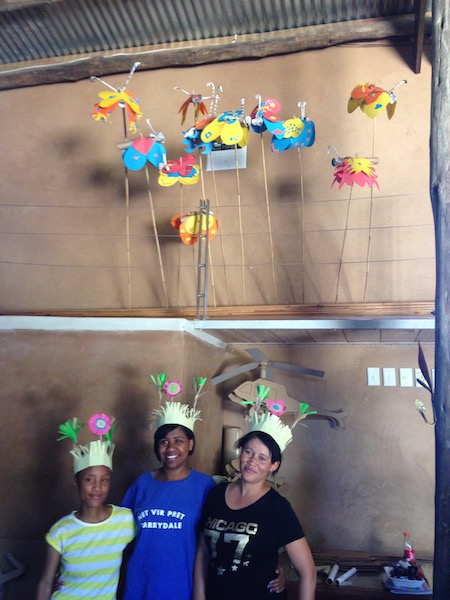
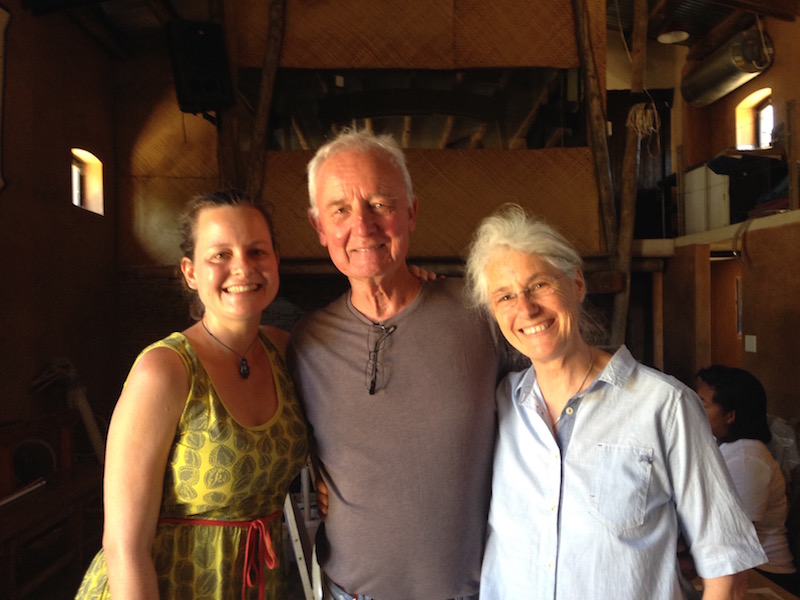
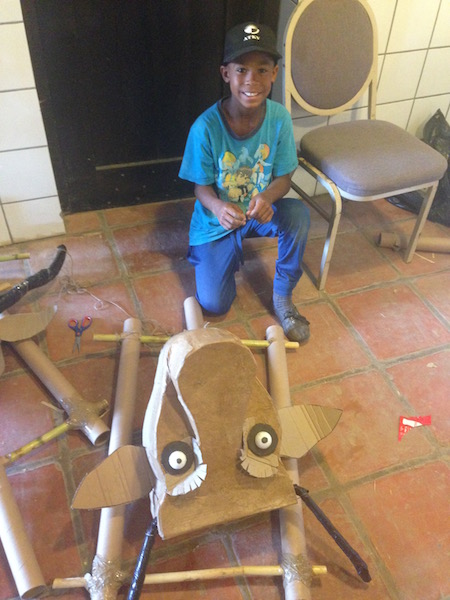
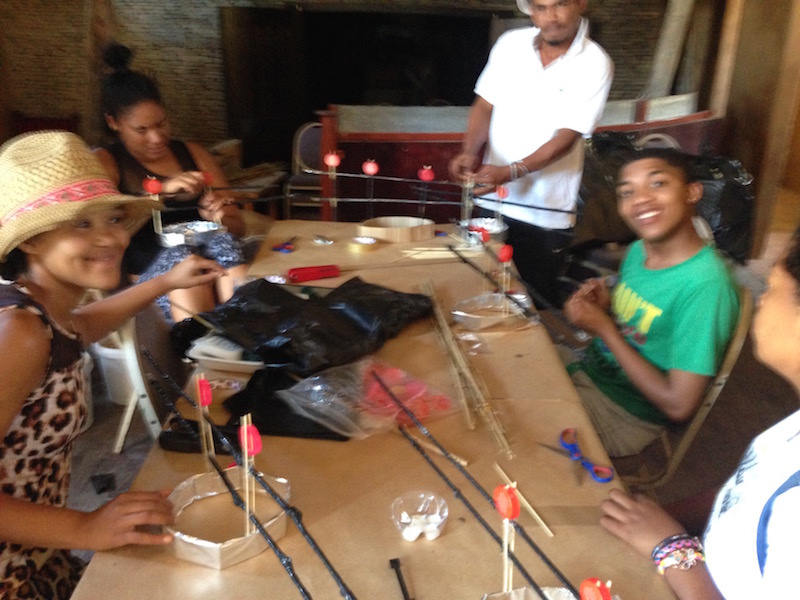
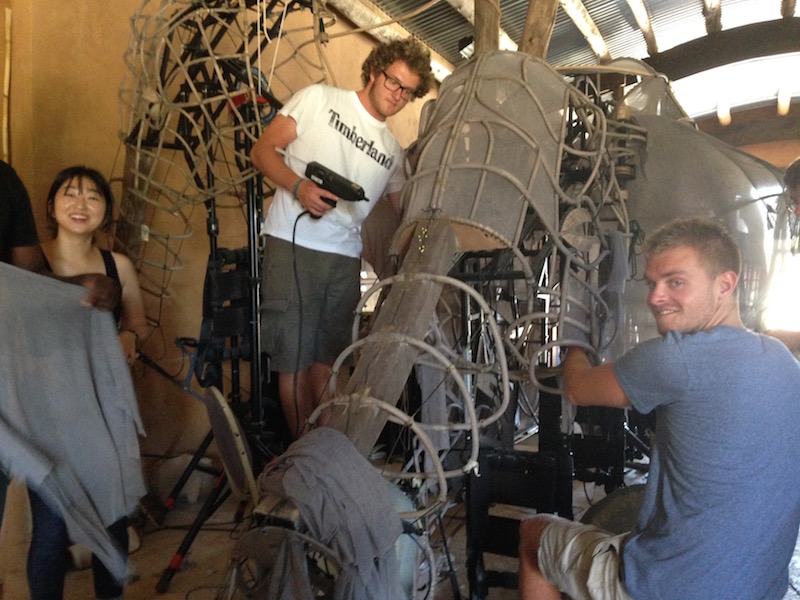
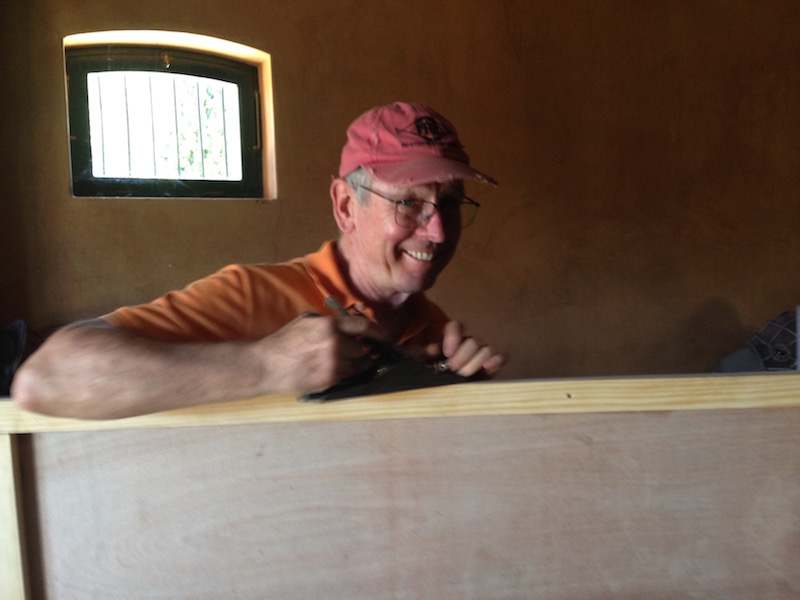
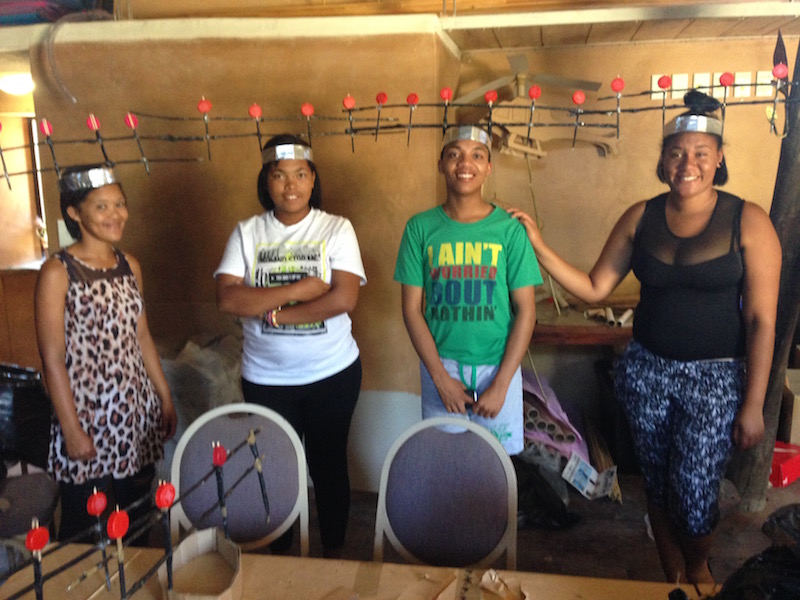
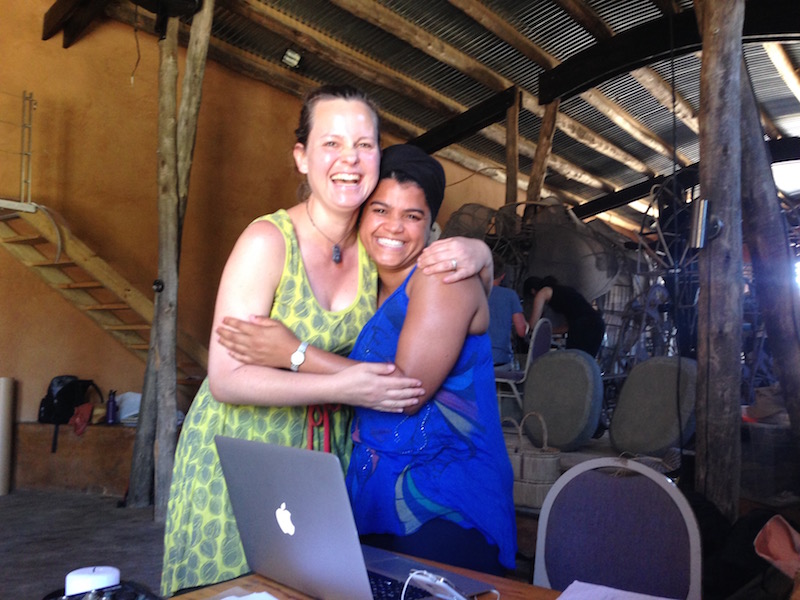
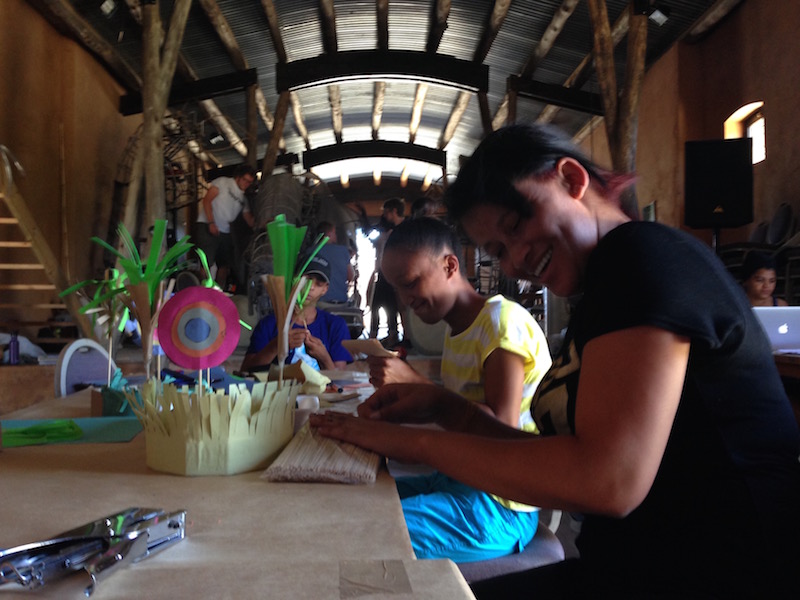
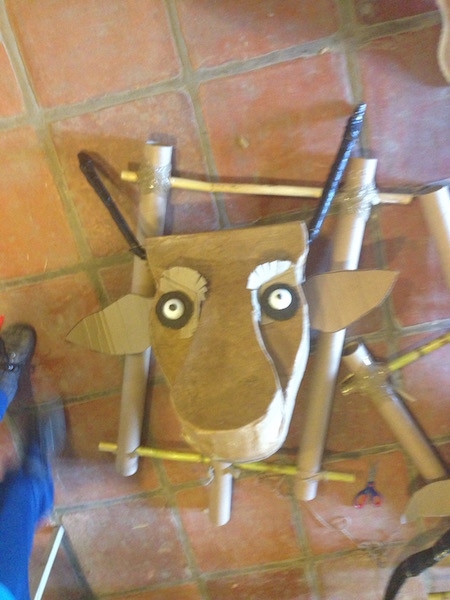
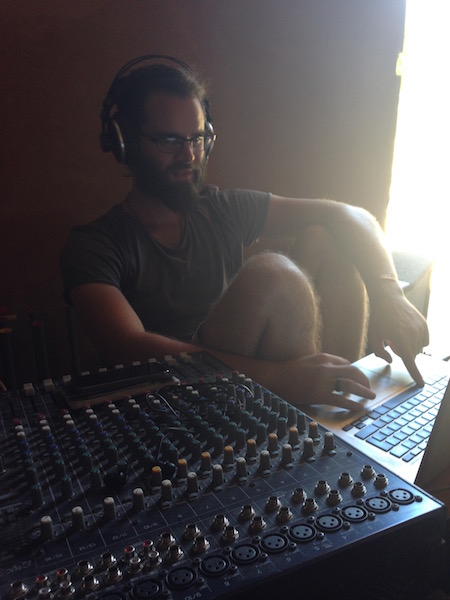












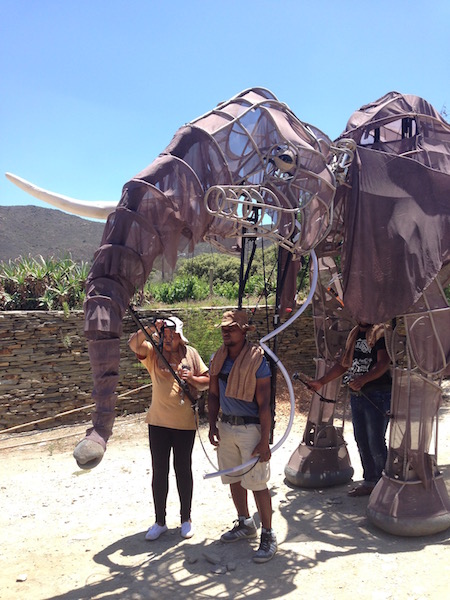

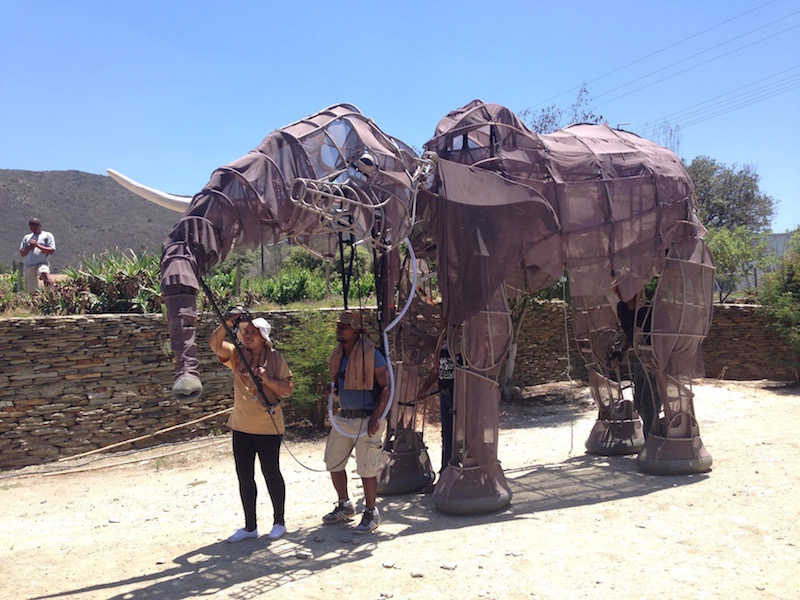
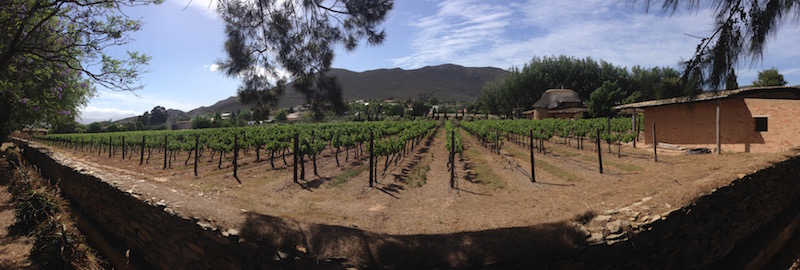
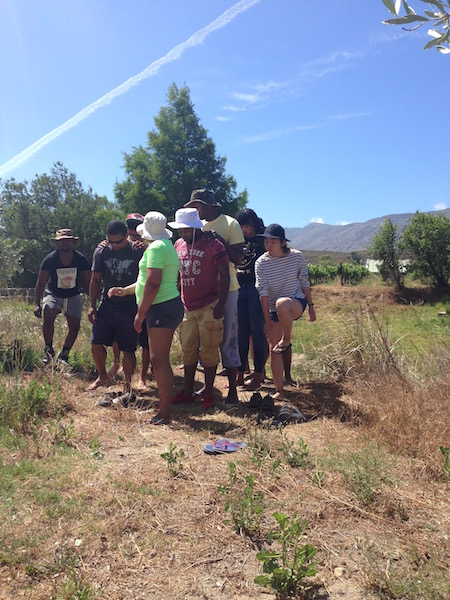
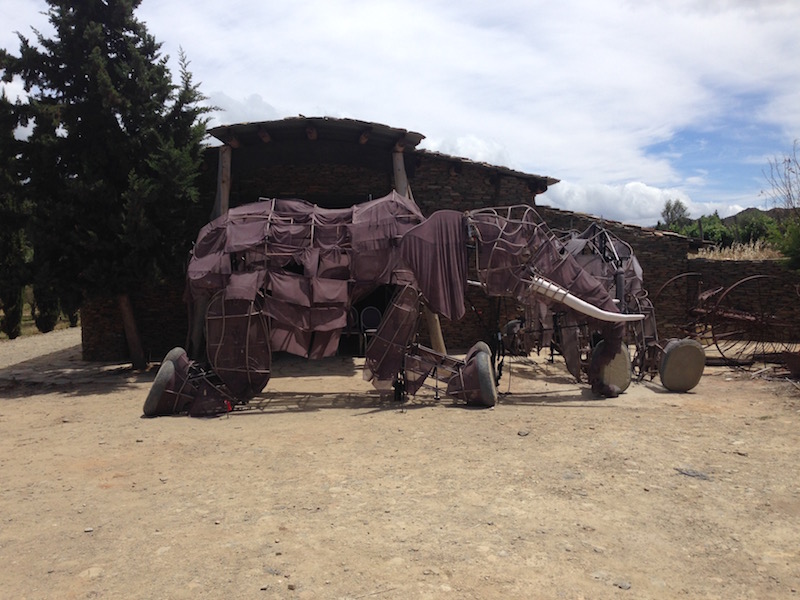
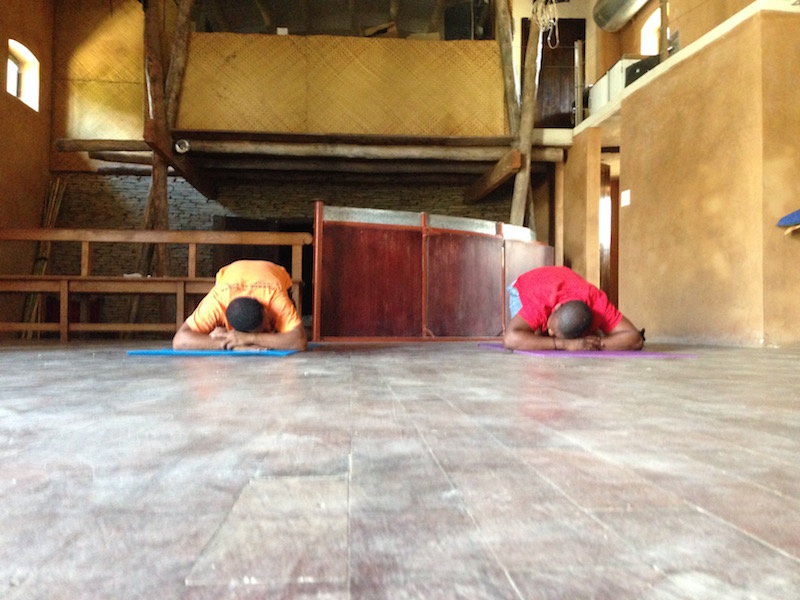
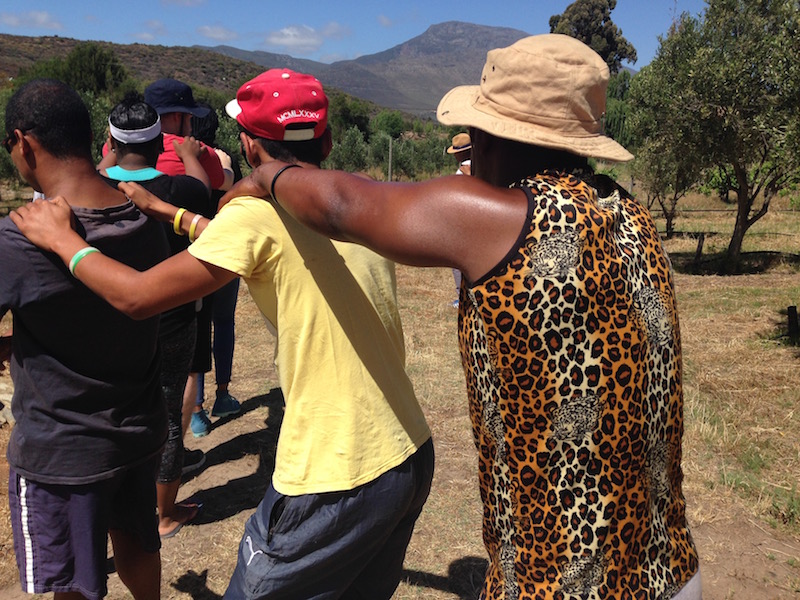
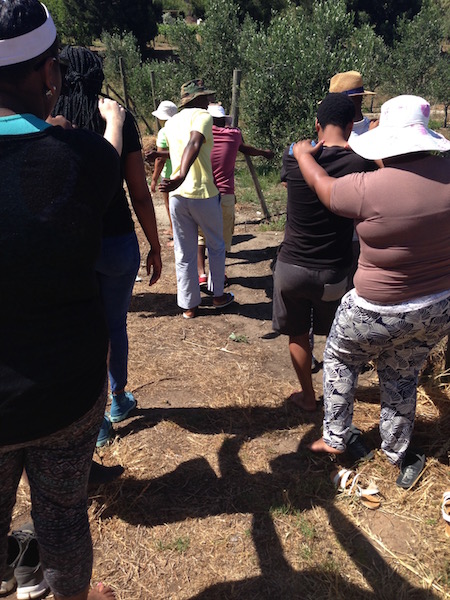
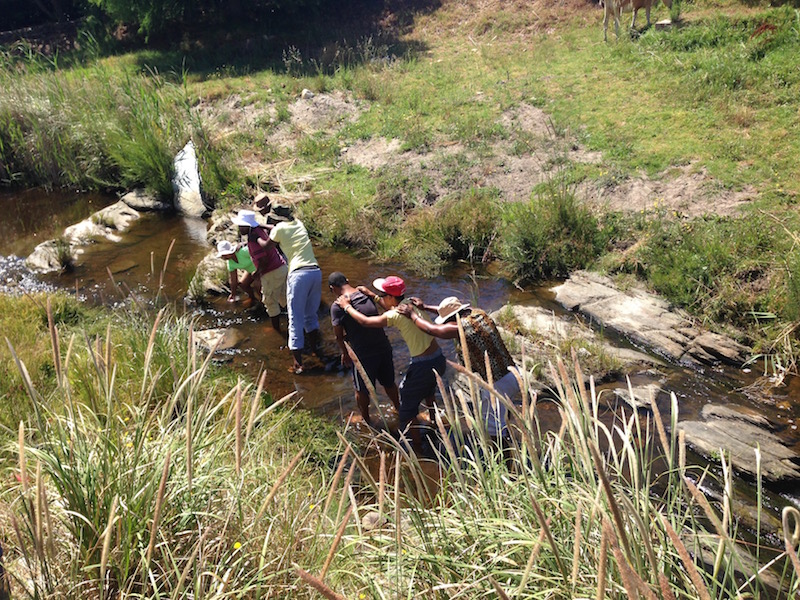
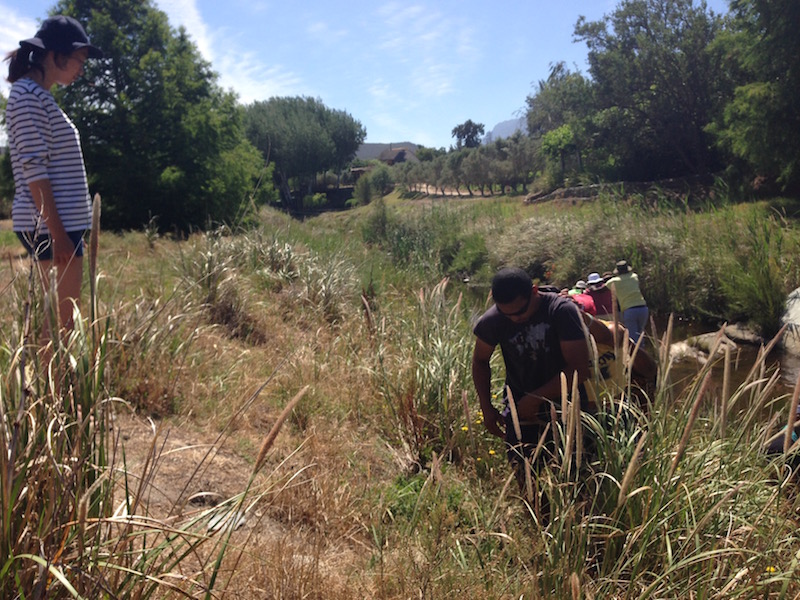
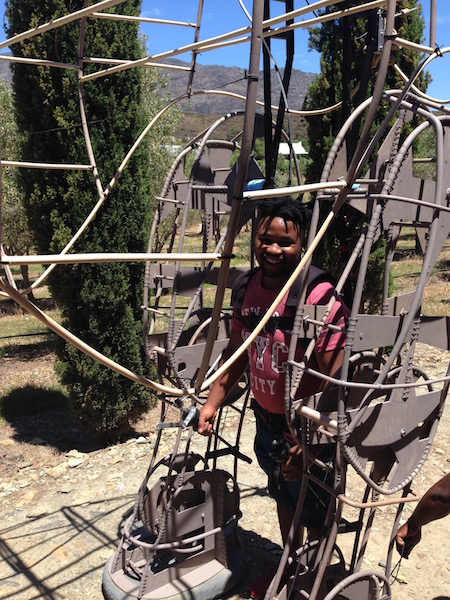
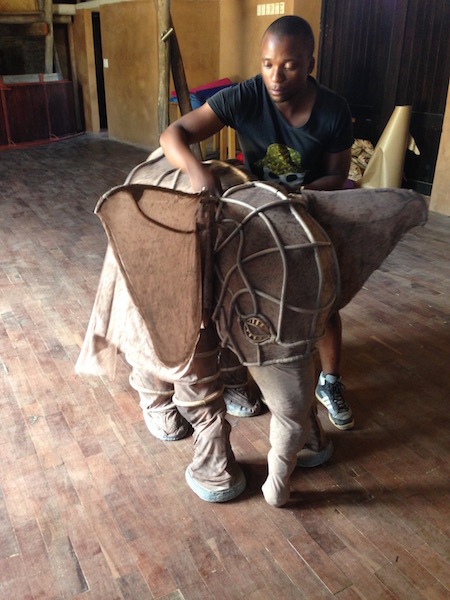
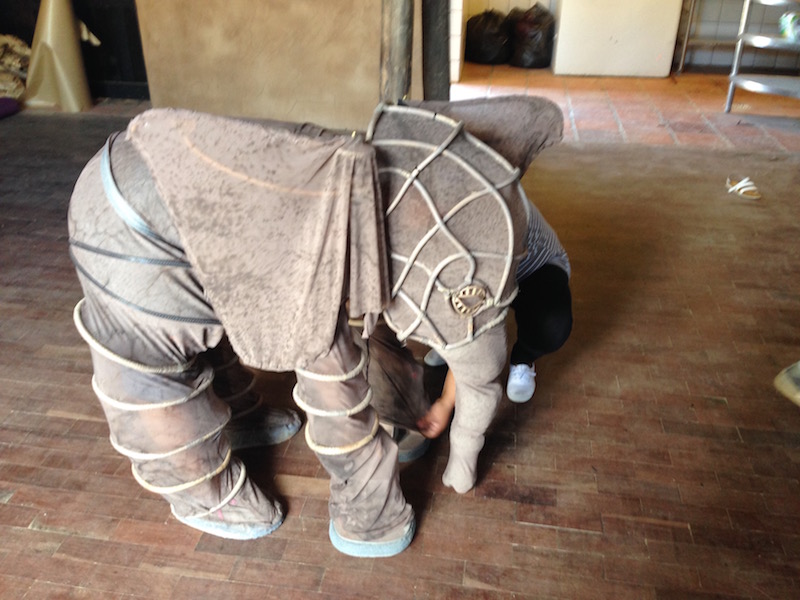
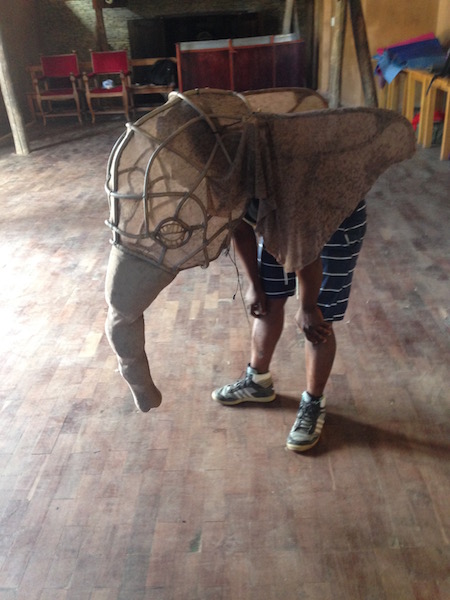
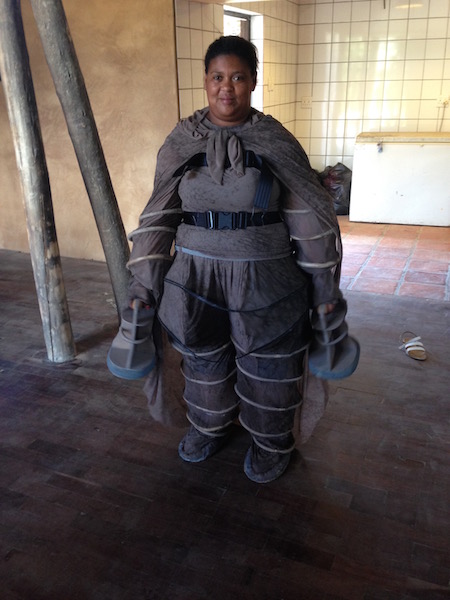
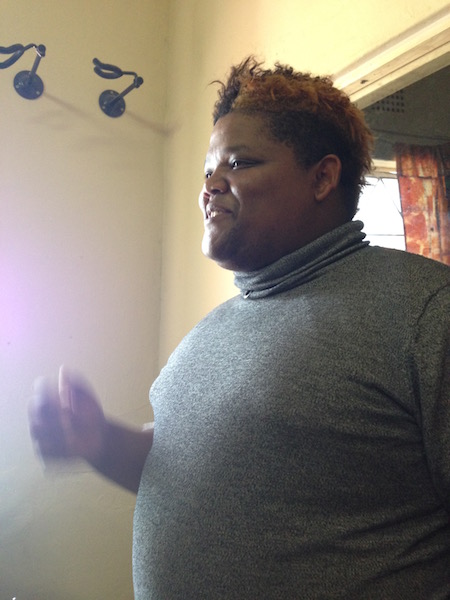
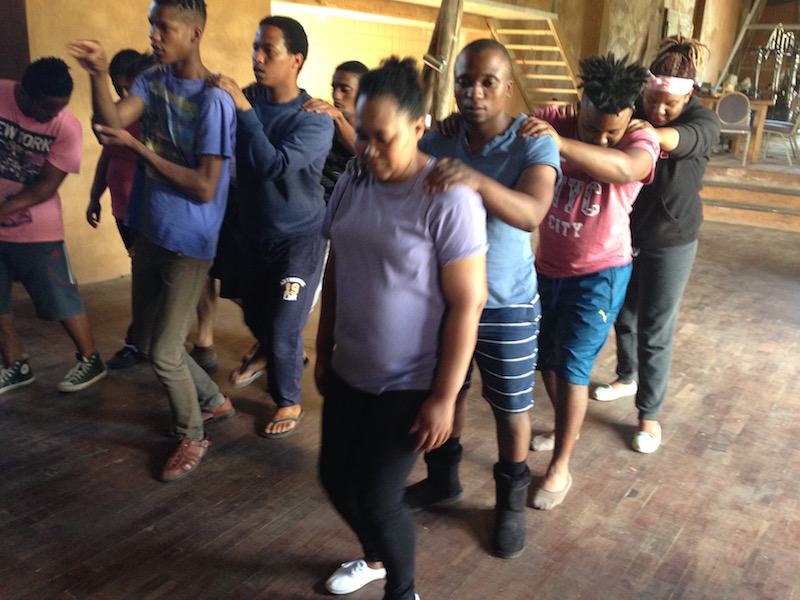
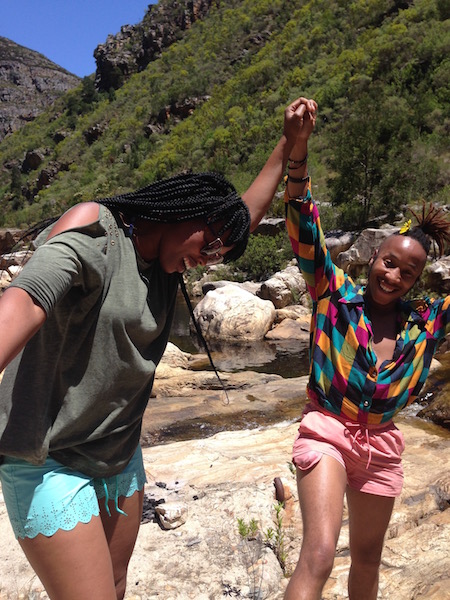
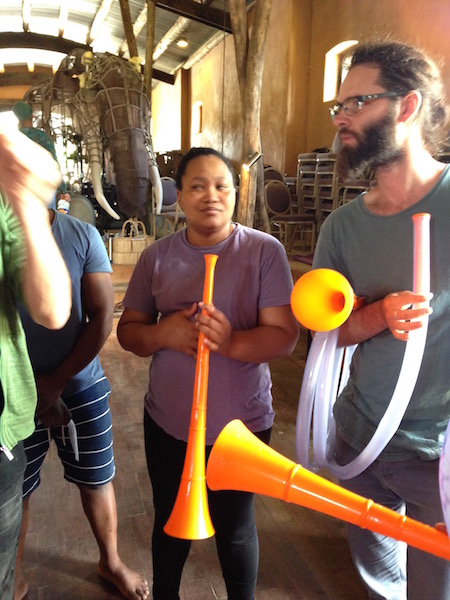
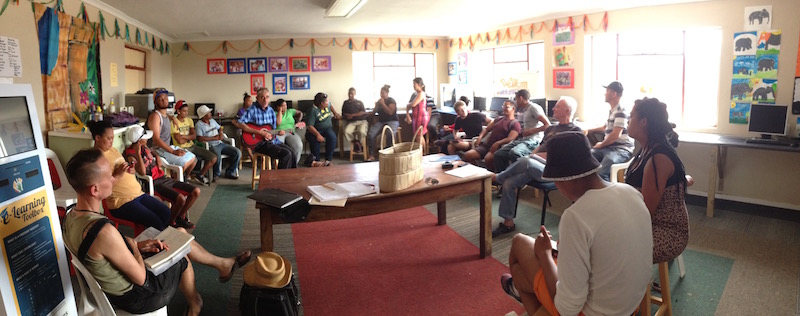
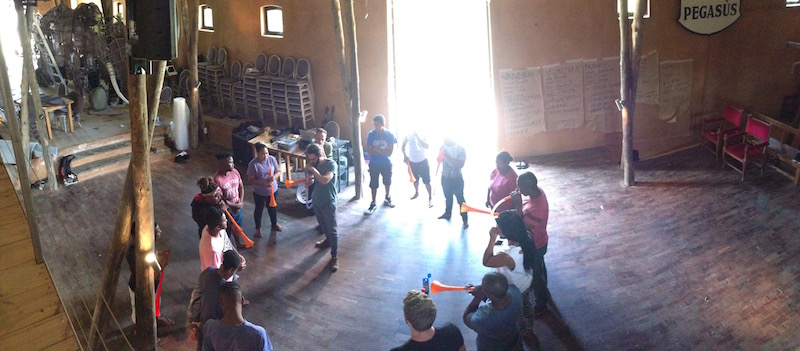
The road to #Olifantland2016 is in full swing.
Day 2 of rehearsals began with our Creative Director Aja Marneweck leading the warm-ups and teaching our puppeteers the importance of breathing and opening their vocal channels. Music Director/Sound Engineer, Simon Kohler gave lessons on using the mouth and the voice as an instrument, thus manipulating the Vuvuzela to create elephant sounds that would help make the giant puppets come alive. Craig Leo, Puppetry Director, completed the day off with some introductory intense puppetry training where our puppeteers had the opportunity to test out the giant elephant puppets.
With the 18th of December just weeks away, the road to #Olifantland2016 is steadily making progress.
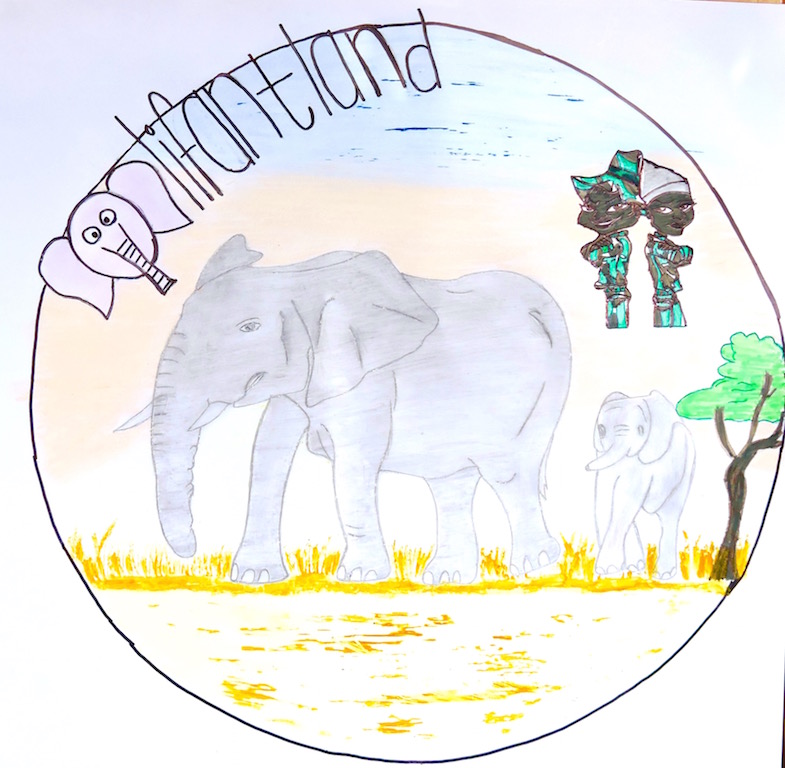
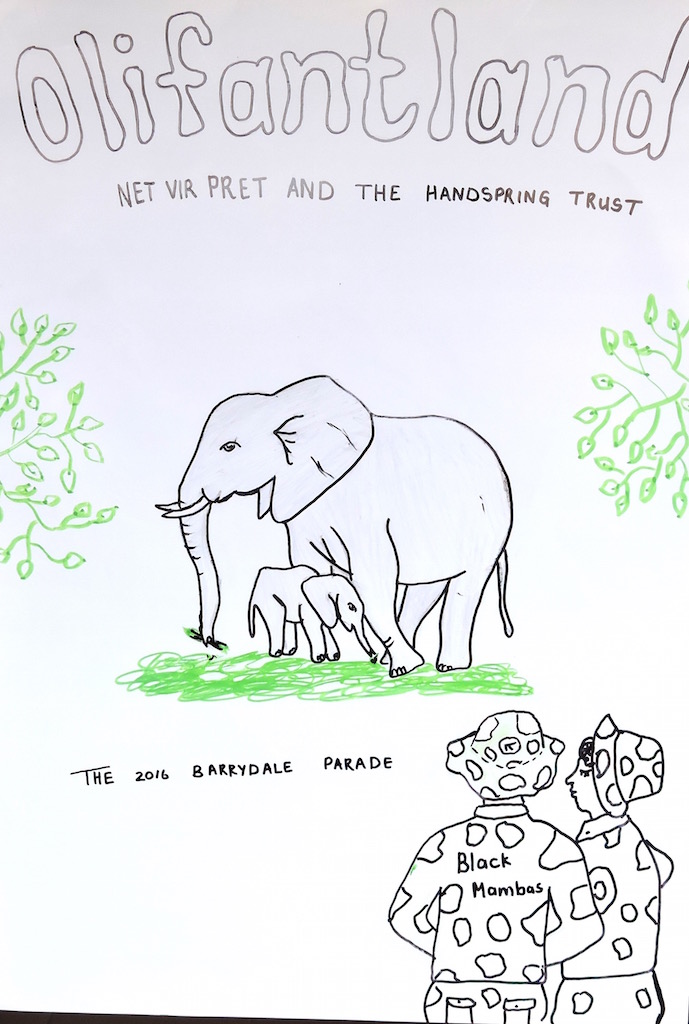
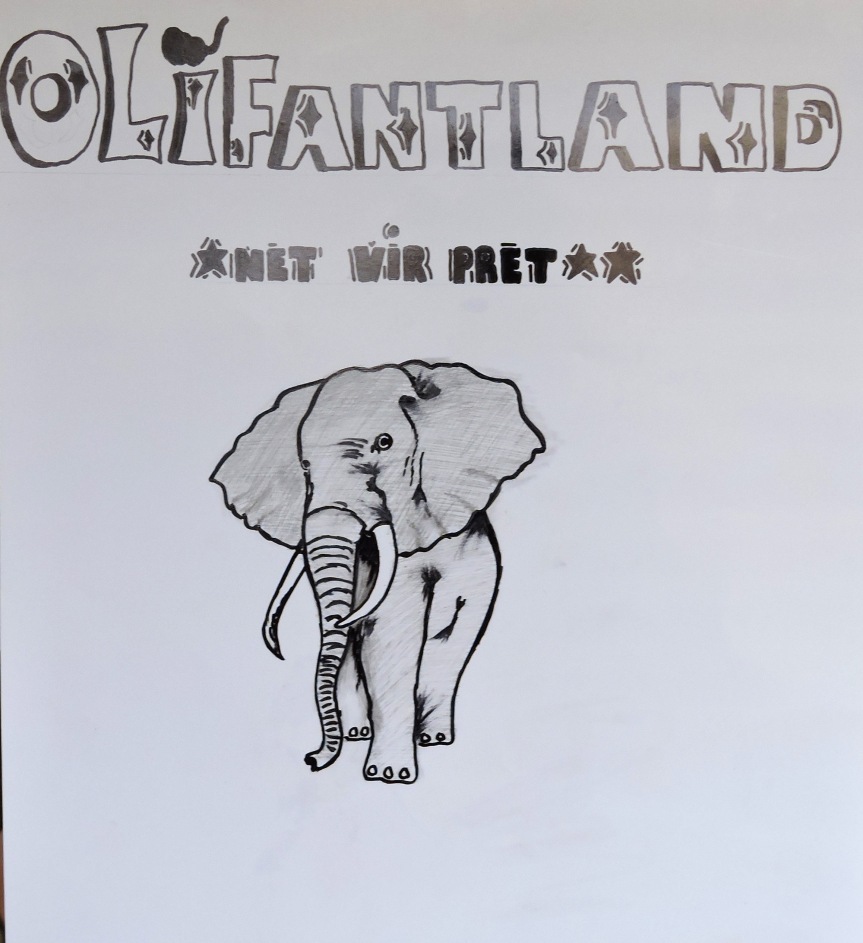
Our first view of the Black Mambas was from outside the rickety minibus we had on loan from the Black Mamba’s headquarters and office, on the Olifants West Game reserve in Balule, Limpopo Province. A few km’s from Hoedspruit and the famous Kruger National Park. The Black Mambas were stablished in 2013 in an ‘experimental’ attempt by the rangers and Rhino conservationists at Balule, to find alternative ways to combat poaching. The Mamba’s are central characters in our new show Olifantland. They have provided inspiration for the female characters in our story, based on The Elephant Whisperer by Anthony Lawrence, which is dominated mostly by male characters. The characters of the Mambas in Olifantland are strong, resilient, feminine and create a narrative space for Barrydale women, who are too often sidelined, to explore these elements in their performance.
Our Barrydale team, Donna, Clarissa and two intrepid young leaders, Glanice and Chandre, had begun their journey from Barrydale in the Klein Karoo at 3 am to get to Cape Town International airport, to fly for the first time with myself and our documentary filmmakers Dale and Blake, to Joburg. After another seven hours drive from OR Tambo, we arrived, exhausted and eager to meet with the legendary Black Mambas, the first all female anti poaching unit in Southern Africa.
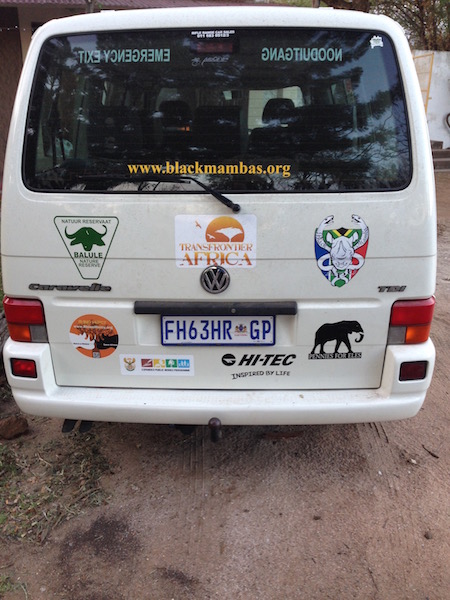
The Black Mamba women provide the first level of protection for the reserve, namely by increasing continuous unarmed presence on the electrified game fences and boundaries of the reserve. A definitively kick-ass feminine presence. We had seen videos of the Mambas and they are famous for their military style parades and don’t-mess-with-us self discipline.
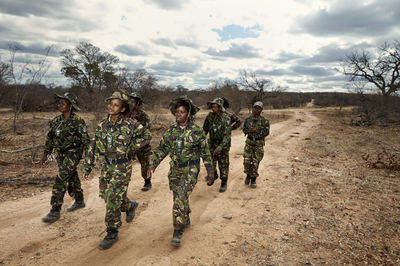
Images by Julia Gunther @ black mambas.org
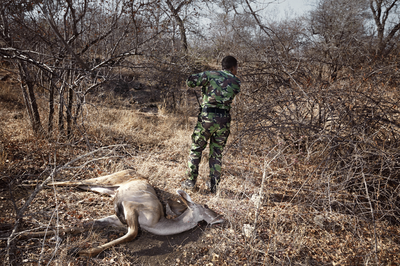
This goes a long way in creating the type of protective presence necessary to do their surveillance, unarmed in Big Five Animal territory (yes they walk unarmed for many kilometres a day through bush that is full of lions, elephants, buffalo etc…). The fact that they walk every day unarmed means that any potential poachers will hopefully not retaliate with guns themselves, but that their presence is a powerful, peaceful awareness through the fact that they ARE consistently THERE.
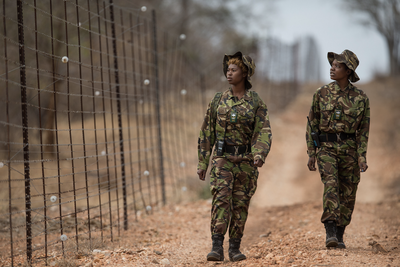
They have successfully protected the land and animals for almost four years, scooping up international awards, including the United Nations Champion of the Earth Award for 2015. Wow! So needless to say we had a lot of thoughts, excitement and preconceptions journeying with us to Balule.
At 6:30 am we had our first scheduled patrol and meeting with the Black Mambas. . Four women walk towards us in the dead-dry sand, in full combat camo uniforms (which get specially flown in from the UK infantry), stern black boots and faces. They are composed, serious and know their jobs back to front. Carol, the most outspoken of the women with the walkie talkie (through which which she relays important info and monitoring between the Mambas on the ground, back to Annie and the rangers at the head office), steps forward and asks us if we can divide into two groups, one to do the long surveillance walk along the fence (20km’s!) to the Olifantsrivier, and the other the short walk along the fence in the other direction. Donna, Glanice and I join the long walk with Joy and Nobuntu, two petite and extremely fit young women who joined the Black Mambas in their second batch of recruits in 2013. It was a long and mostly silent walk, along the fence, needing to keep focused not least because we are walking in total vulnerability to whichever animals might come across our paths. We are also looking for damage to the fence, footprints, signs of poachers, holes.
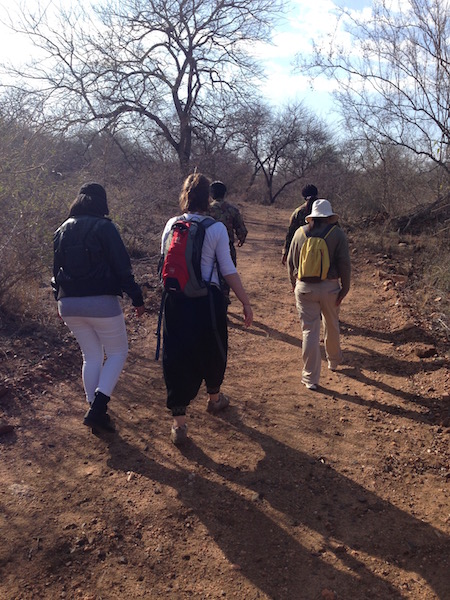
In hind sight, the Mambas were more reserved and guarded than we had anticipated. They get a huge amount of international media publicity and coverage, with news agencies and reporters, students, researchers, organisations and politicians demanding their time and their stories on a weekly basis. So we were warned that they might be a bit guarded and reluctant to engage with us, which is understandable as they have an important job to do and all this attention gets in the way. These are President Jacob Zuma’s pride and joy as a shining example of SA women’s empowerment -the Mambas are mini celebrities in a way. The Government also pays a portion of their small salaries.
Who were we and what were we seeking from them? It was difficult to explain that we were creating a show about Elephants and animal conservation with the Barrydale community, that it would be told through life size puppets, and that we really wanted to bring in an awareness of feminine leadership and female empowerment to our story. We wanted to get a taste of the day to day realities of their lives and work. We wanted to spend time sharing their lives, to find out, as women from our own different spaces and backgrounds, exactly what it takes to do this type of high risk work in the masculinized, militaristic arena of anti-poaching protection and conservation. We were here to gain inspiration, advice, mentorship and inside info on what it is like to be a woman working on the ground to protect the land and animals.
I asked myself these question as massive blisters formed on my soft city feet as we walked the long path along the fence. How do the Mamba’s handle this walk every day? Don’t their bodies get sore and tired? Nobuntu is also not feeling so well this morning, but she is there walking and working through it. I was very nervous that we might stumble upon a herd of buffalo- I am not scared of lions, but I have been warned that buffalo are grumpy, aggressive and very dangerous to those on foot. Joy laughs at me and says, don’t worry, if you see a buffalo just run behind the largest tree and confuse it by moving in the opposite direction…What?! What tree?! The bush is dry dry dry and the trees are small and bare, Balule is in a total drought and water shortage. So basically if we stumble unawares onto buffalo, we’re goners. I put on a brave face, no need to alert Donna or Glanice, although I see both are very quiet and totally focused. Dale, the camera guy however seems to be totally unaffected and carefree, losing himself along the road to photograph…something…
We reach our target distance, just before the river, after a pretty uneventful stretch of fence, except for an amazing tree surrounded by dead leaves and ants, that rustled loudly like a full downpour of rain. But there was no promise of rain on any horizon. Joy and Nobuntu sit and we joke about a large Buffalo down by the water’s edge. Joy and Nobuntu are both Tsonga, and Joy was born near the Kruger. She joined the Black Mamba’s because the job was available and she loves the exposure and attention she gets. Her family are also very proud of her. The salary is not so great though and they really struggle to make ends meet. We also find out that the Black Mamba’s still have to walk to fetch their drinking water because the borehole has dried up and the reserve is in dire drought. They have no means of collecting the water so they walk backwards and forwards with 5litre bottles every day. No toilets with running water, no showers. There is one tiny two plate stove for them to cook on in their shared camp. Joy says that she has experience with fetching water in a wheel barrow in her home village, and that this would go a long way to making their lives a little easier, if they could collect water in larger amounts and containers.We head back, past a herd of wildebeest and Donna and I chat about what it would take to have to walk to fetch water every day after this massive perimeter walk. We are left with the feeling that everyone wants a piece of the Black Mamba’s, in a way their work is novel and draws so much attention, but there is very little financial reward or support on the ground for the real lives of these resilient women –
thanks for visiting our blog, next post I will explore some deeper conversations our Barrydale women had with the Black Mambas while on snare sweeps,
‘Aja
(Olifantland Creative Director)
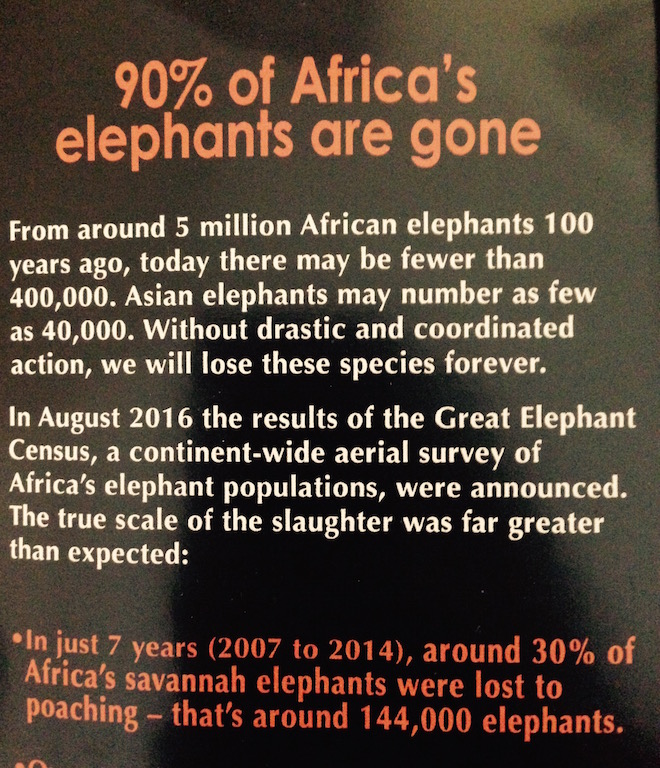
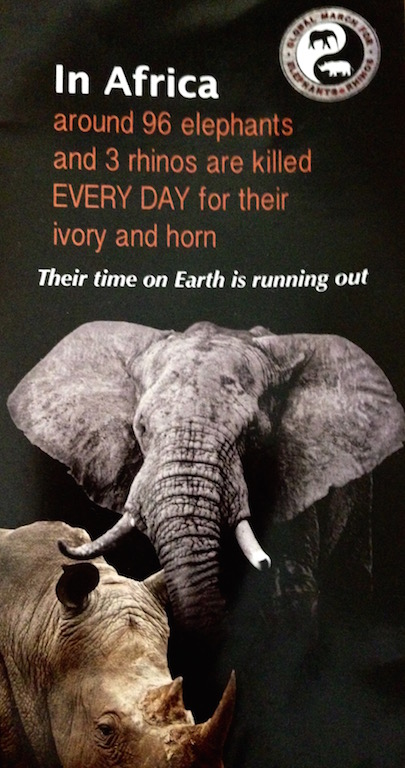
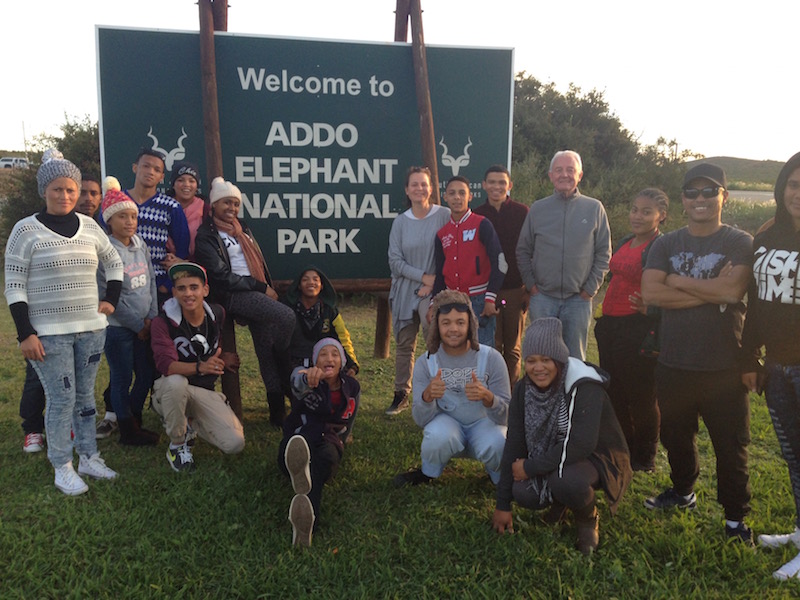 On the 16 June 2016, a group of young leaders from Net Vir Pret in Barrydale travelled with puppeteers from Cape Town to begin what for most was their first live experience of being up close with Elephants. This was in preparation for the new giant puppet event, Olifantland, a huge celebration created with local youth and children attended by thousands in the community, that happens annually around Reconciliation Day in this dusty Klein Karoo farming town. And the Barrydale event is so much more than a puppet parade. Every year the community tackle potent questions that challenge and push the bar around serious issues that the community face, seeking out the difficult and darker aspects of identity and history using puppetry to find new ways for expression and creative routes for hope.
On the 16 June 2016, a group of young leaders from Net Vir Pret in Barrydale travelled with puppeteers from Cape Town to begin what for most was their first live experience of being up close with Elephants. This was in preparation for the new giant puppet event, Olifantland, a huge celebration created with local youth and children attended by thousands in the community, that happens annually around Reconciliation Day in this dusty Klein Karoo farming town. And the Barrydale event is so much more than a puppet parade. Every year the community tackle potent questions that challenge and push the bar around serious issues that the community face, seeking out the difficult and darker aspects of identity and history using puppetry to find new ways for expression and creative routes for hope.
Here are some words and images from the young leaders on the trip to Addo:
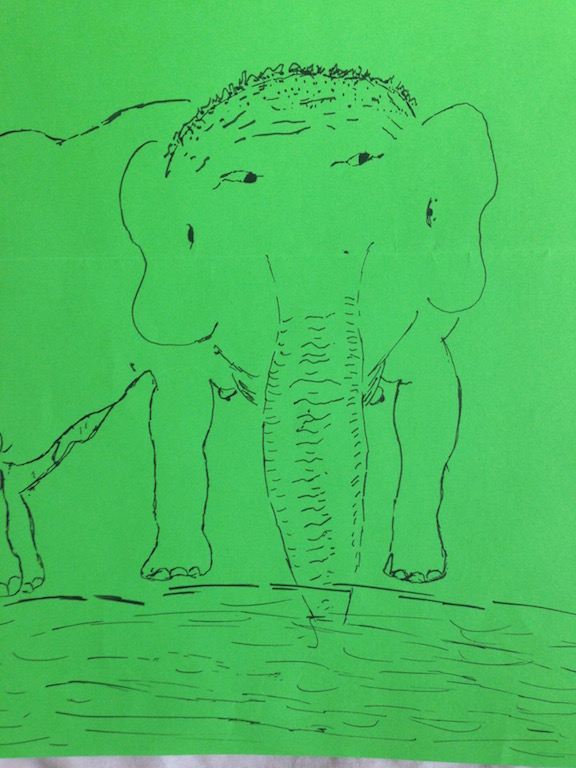
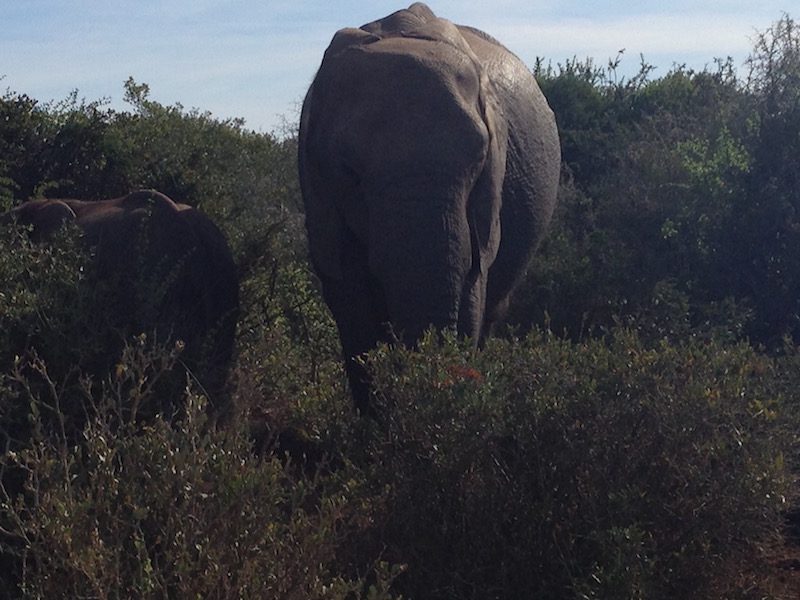 “For me this experience has been life changing. I say this because out here I’ve been seeing animals in their natural habitat and the way nature has evolved. The birds in flight, of just sitting in the bush gave me a sense of their freedom and how they use that freedom. Wisely…I felt completely overwhelmed by their beauty. Then there was the majestic Elephants and how they live, just like human beings they are tight knitted together. It makes you long for certain aspects in your own life”
“For me this experience has been life changing. I say this because out here I’ve been seeing animals in their natural habitat and the way nature has evolved. The birds in flight, of just sitting in the bush gave me a sense of their freedom and how they use that freedom. Wisely…I felt completely overwhelmed by their beauty. Then there was the majestic Elephants and how they live, just like human beings they are tight knitted together. It makes you long for certain aspects in your own life”